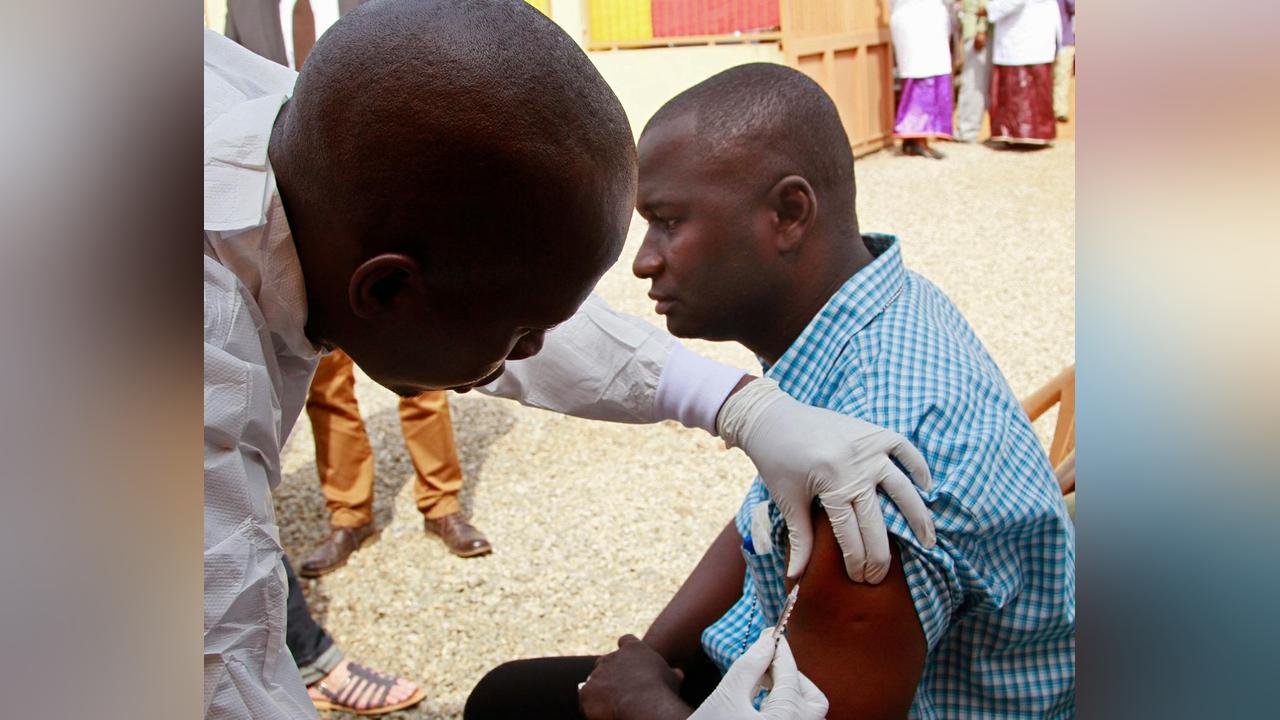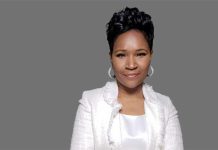Africa-Press – Lesotho. Medicine is a delicate field of human knowledge, particular in its very basic nature because it is the one field that deals directly with the most primal of human needs; the need to live and to survive in relative comfort.
The practice of medicine is possibly as old as humanity, with it stemming from the need to fight diseases that threatened the survival of the human race, and to prevent the discomfort of having to live in the uncomfortable and often painful state of illness after invasion by known and unknown germs into the bodies of the individuals within a given community or society.
That germs are part of the environment is a fact, but another fact of the matter is that they are best living without the confines of the human body where they wreak havoc with the bodily functions of the various organs comprising the human form.
Doctors as individuals or groups spend their time observing the effects (symptoms) varied germs, viruses, and bacteria have on the human body, and after careful research prescribe the right course of drugs and medicines to treat the condition observed.
Research into the prevention and the treatment of diseases takes up most of the lives of these truly honourable individuals, and the trips to the laboratories, the theatres, and the consulting rooms are in every essence what keeps the world of humanity comfortable enough to live in relative comfort; free from the fear and the negative effects of disease, so that each and every individual in society can perform their set task to the optimum required to guarantee that humanity progresses in harmony.
However, there are a few “unlearned” observations one makes as a “layman” on the profession’s progression, and what comes up is a series of questions that may in effect render one confused, if not totally lost, when it comes to developments in medicine in recent years.
Every craft, profession, and occupation has a code, and it does not matter how mundane any given duty may seem in the eyes of the less knowledgeable: the truth of the matter is that all of us are in their pursuit of their given vocation required to abide by a given law or set of oaths, to perform the duties dispensed by an individual tasked with executing such a duty, job, task, or work to the best of their ability and without infringing on the rights of others.
A duty dispensed without the guidance of oaths or statements of intent, or commitment is reminiscent to a vehicle without a steering wheel, which cannot be manoeuvred to the direction desired, but which at its own behest flounders in all directions; in the process rendering itself a menace to those either in its path or those by the roadside who are either aware or unaware of its dangerous unguided advance.
The delegation of duties goes hand in glove with the donning of the appropriate garment of operation to avoid confusion in the minds of the individuals that will have to deal with the individual tasked with the performance of the given task.
For example, the police officer cannot go to work in a swimsuit or boxer shorts and expect to be given the attention an officer in his line of work gets from the other citizens of the state he is working in.
The blue uniform he or she wears to work is the reserve of his sector of operation, and cannot be donned by any June, Julie or Jane that walks the pavements, for in truth, the wearing of such a uniform makes it easier for the officer to establish the necessary element of rapport salient to dealing with matters his squad have to interfere in on a daily basis.
The medical profession, however, leaves one confused these days; the question being: who is the doctor, who is not . . . when all of them (knowledgeable and pretender) are wearing the white coats of the profession, and all of them (the expert and the ignorant) are giving diagnoses of the common and rare symptoms of diseases plaguing human communities?
The medical profession is guided by the Hippocratic Oath, and one should have gone through some intensive training in the medical field to dispense medicine because the logical assumption based on the amount of time spent learning the salient aspects of the craft is that they will know what to do in the treatment of the patients’ disease or specific medical condition.
There is the Hippocratic Oath which the doctors make upon graduation from their medical schools, and one could be right to guess that it serves as a guide throughout the life of the practice of medicine.
The lines below encompass the most essential parts of the profession, that is: I swear to fulfil, to the best of my ability and judgment, this covenant:
I will respect the hard-won scientific gains of those physicians in whose steps I walk, and gladly share such knowledge as is mine with those who are to follow. I will apply, for the benefit of the sick, all measures [that] are required, avoiding those twin traps of over-treatment and therapeutic nihilism.
I will remember that there is art to medicine as well as science, and that warmth, sympathy, and understanding may outweigh the surgeon’s knife or the chemist’s drug.
I will not be ashamed to say “I know not,” nor will I fail to call in my colleagues when the skills of another are needed for a patient’s recovery. I will respect the privacy of my patients, for their problems are not disclosed to me that the world may know.
Most especially must I tread with care in matters of life and death. If it is given to me to save a life, all thanks. But it may also be within my power to take a life; this awesome responsibility must be faced with great humbleness and awareness of my own frailty.
Above all, I must not play at God. I will remember that I do not treat a fever chart, a cancerous growth, but a sick human being, whose illness may affect the person’s family and economic stability.
My responsibility includes these related problems, if I am to care adequately for the sick. I will prevent disease whenever I can, for prevention is preferable to cure.
I will remember that I remain a member of society, with special obligations to all my fellow human beings, those sound of mind and body as well as the infirm.
If I do not violate this oath, may I enjoy life and art, respected while I live and remembered with affection thereafter. May I always act so as to preserve the finest traditions of my calling and may I long experience the joy of healing those who seek my help.
Sharing knowledge is the primal human mode of communication. We talk to “To share knowledge with those who are to follow” so that they can follow in our footsteps in a manner that progresses the human knowledge base.
However such knowledge should be directed to avoid the disastrous results of the chaos that stems from having such knowledge landing in the wrong hands that are without either experience or authority. The main problem these days is that medicine falls into the wrong hands and the results thereof are catastrophic.
A layman experiences pains in a particular area of their body, Googles such a vague description, and then randomly picks a “cure” for their “assumed” condition and uses aptly it without consultation of a registered physician.
The result of this “quack” treatment regimen is often that one ends worse off than they were when they began, because improper procedure was followed in the self’ prescribed course of treatment (because the ‘doctor’ on the web often bears no face, and his domicile is unknown).
Measures to counter this practice are at best weak at this moment, and many will fall victim to the unknown web “doctors” and their vague diagnoses with often fatal results.
The main ethos to the practice of medicine is to prescribe relevant drugs to the best of ability for the good of the patients and to try to avoid harming them.
The problem is that what is prescribed in these times where medicine has become common ground, and anyone can establish their own practice under the guise of “natural/herbal/indigenous medicine”, many patients come out of their course of treatment worse off than they were before they began because they came across one of those quacks advertising their services via leaflets on the street, through the radio, magazines, and other forms of media.
Without controls in place by relevant health authorities, one finds an honourable profession infiltrated by an army of ignotum ignorantis and “doctor-cure-it-alls” that often dispense untested and lethal drugs to anyone if they ask or can devise a plan or method of payment for the mysterious (often without label, composition, or warning of side-effects) drugs sold at exorbitant prices.
That the drugs could in effect be damaging to the body of the patient under these uncontrolled conditions of treatment seems to be forgotten; for all that counts are the banknotes placed on the table of the quack’s surgery situated in a backstreet alley in a backroom.
The legality of such malpractices as abortion in many countries has led to the contention anti-abortion sentence of the Hippocratic Oath, but avoiding the violation of the morals of the community is one of the main guides to the practice of medicine.
To the contender whose understanding of the morals is limited only to the interest of the minute group in the face of the more sensible interests of the masses, the call is that there are “rights” each individual is granted by the constitution, which is true.
However, if such “rights” mean that one will dispose of the foetus at the village dump site where it will be mauled by dogs in full sight of minors, then one’s common sense should tell them that there are certain spheres of medicine that need to be kept private.
The billboards one sees advertising “safe abortion” are an infringement on the individual moral and religious “rights” of other members of the community as writ and declared in the constitution: the defence of these “rights”is just “moral turpitude” legalised.
To keep the good of the patient is the highest priority, and should be given such attention at all times and at all costs. Other conflicting interests and concerns on the part of the physician or “doctor without qualification or experience” such as making money, should not override this aspect.
Pathos should be the main quality and virtue of the medical practitioner, not the modern version of greed posing as “making a living”, for in truth the doctor need not end lives in the execution of his duties in the oblivious chase for lucre.
The good of the patient should be paramount, foremost, and the only fundamental guiding the profession. The duty of the medical practitioner should be to save lives and maintain lives; not the present chaotic scene where quacks pose as either doctors or medicine men, selling expensive cure alls that have so far cured no disease.
There are physicians, surgeons, scientists and other medical practitioners whose contribution to the welfare of the world can be seen on the books of the history of time.
One is not confused as to their tremendous contributions in the varied lives of the human race, and this is due to the fact that their cures were not expensive, and they were easily accessible.
Their vague modern version leaves one wondering who to follow, who to consult: because there are now a million voices proclaiming their cure as the best on the radio, on the TV, on the Web .
Everywhere.
Which voices does one follow in this chorus? And by right, should medical services be advertised? I thought the adage goes: empty vessels make the most noise.
Has medicine become empty? It is so loud. . Joseph Lister stated: If we had nothing but pecuniary rewards and worldly honours to look to, our profession would not be one to be desired.
But in its practice you will it to be attended with peculiar privileges, second to none in intense interest and pure pleasures. It is our proud office to tend the fleshy tabernacle of the immortal spirit, and our path, rightly followed, will be guided by unfettered truth and love unfeigned.
This statement was made well before Alexander Fleming found the vaccine that should have rightly stopped the Tuskegee Project before it began. It was made before AIDS came along only to give birth to a million unqualified doctors each with their own impotent quack concoction claiming to cure the effects of the disease.
I guess the profession should focus on getting the vaccine to HIV; before hordes of poor people die from drinking poisonous concoctions of dubious origin: because the claim of the quack is that all diseases can concurrently be treated in one course of treatment. The liver disagree .
For More News And Analysis About Lesotho Follow Africa-Press






